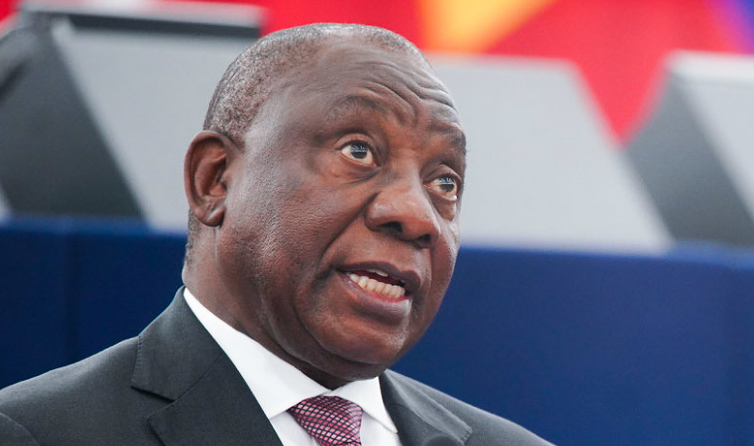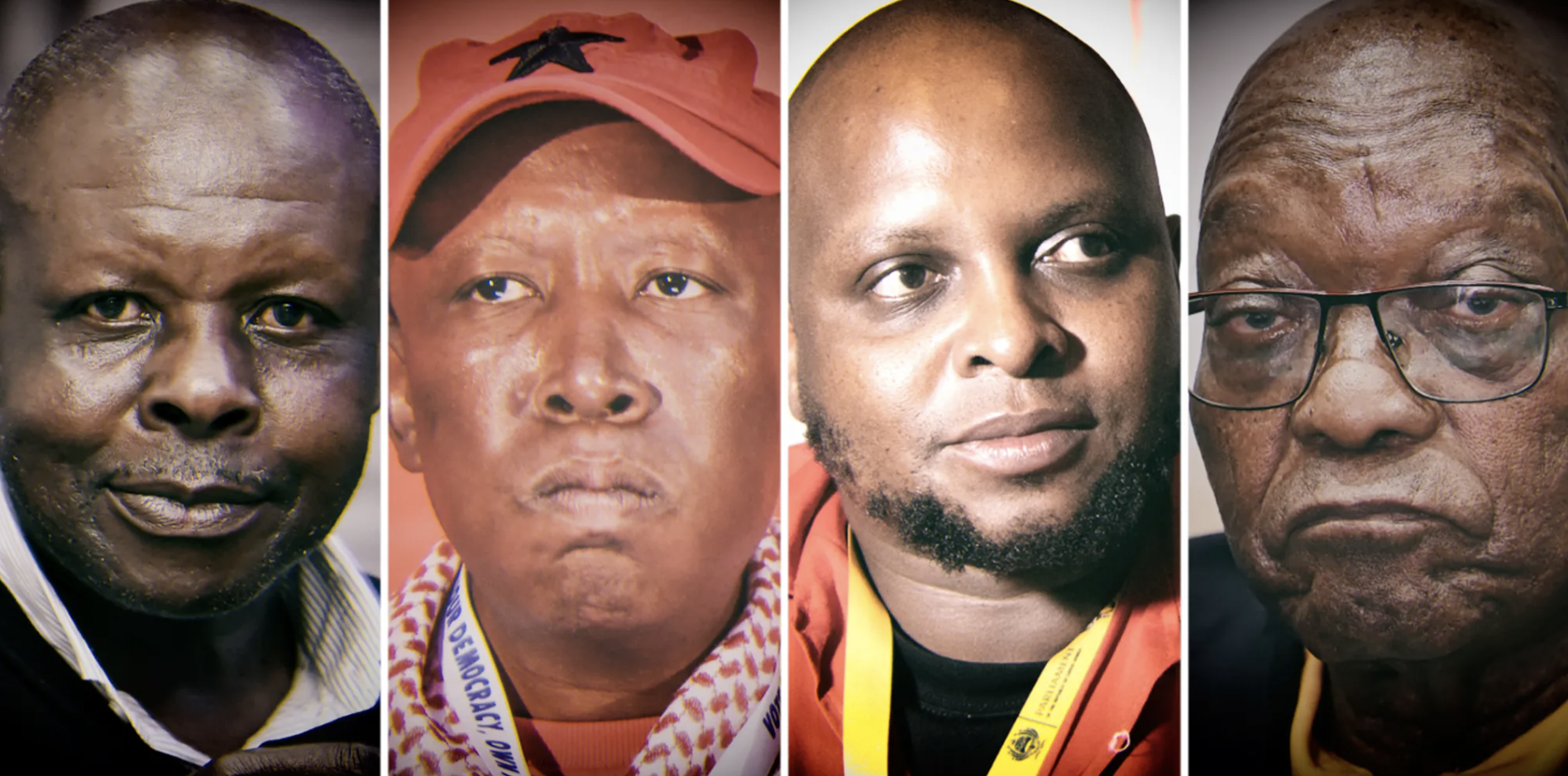News
Has the ANC’s Pivot to the Centre Changed South Africa’s Trajectory?
Now that the dust — if you ignore the hot air stirring up a whirlwind in Gauteng — has settled on South Africa’s new coalition government, it is a good time to reflect on just how profound a change has gripped the country.

Former Director, The Brenthurst Foundation

Former Research Director, The Brenthurst Foundation

In a book published less than a year ago, The Brenthurst Foundation outlined three possible scenarios for South Africa: The Good, The Bad and The Ugly. There was a fourth scenario which also paid homage to the classic Sergio Leone Westerns, A Fistful of Cents.
The essential question was: Which way would the ANC pivot if it fell below 50%? Would it embrace the centre or would it seek to rebuild its relations with the left-wing populists who had departed to start their own parties?
At the time of publication, The Good scenario was seen as naïve wishful thinking, with most observers expecting the ANC to pivot towards populism by allying with the EFF, leading to a Venezuela- or Zimbabwe-style economic meltdown.
The book and the scenario process were an attempt to point out the irrationality of that choice and to encourage some deep introspection over the consequences of making the wrong move.
So, what caused the ANC to build a coalition of the constitutional centre against the expectations of the commentariat?
The reaction of liberation movements, particularly in southern Africa, to looming electoral defeat has been the hollowing out of electoral commissions, the capture of the judiciary and the use of repressive violence to control electoral outcomes in their favour. If necessary, they have used outright manipulation of the result to stay in power.
This has occurred in Zimbabwe, Mozambique, Angola and, to some extent, in Tanzania. South Africa’s ruling ANC has actively cultivated strong relations with these election-rigging liberation movements, including by sending leaders for training at the Mwalimu Julius Nyerere Leadership School in Kibaha, Tanzania, which is supported by China.
On the curriculum at this school is the Chinese Communist Party (CCP) notion of weiwen, described by the Africa Centre of Strategic Studies as meaning “stability maintenance” or “regime survival” under CCP rule.
This school services the Popular Movement for the Liberation of Angola (MPLA), the Front for the Liberation of Mozambique (Frelimo), the South West African People’s Organisation (Swapo) of Namibia, Tanzania’s Chama Cha Mapinduzi (CCM, or Revolutionary Party), the Zimbabwe African National Union-Patriotic Front (Zanu-PF) and the ANC.
These six parties are also members of the organisation Former Liberation Movements of Southern Africa (FLMSA) which, according to the centre “analyses geostrategic trends, domestic and global challenges to their rule, and plans to provide one another support”.
Ahead of the election, there was speculation that the ANC might follow the same path as its regional fellow travellers and attempt to subvert the electoral outcome, something which the party dismissed.
State Capture
To understand why this did not happen and why the ANC accepted the result, several important factors which distinguish it from its neighbours should be considered.
The first is South Africa’s recent experience of State Capture under former president Jacob Zuma. He was following the model developed by the neighbouring liberation movements by attempting to hollow out the state, cow the judiciary, distribute patronage to buy political favour and support and close down media criticism so that the ANC could rule, as he put it, “until Jesus comes”.
But Zuma was applying a template which could not succeed with South Africa’s mostly urbanised voters who place a higher value on open democratic contestation and abhor corruption. The ANC, realising that Zuma had become unelectable as corruption scandals engulfed the party, pivoted to Cyril Ramaphosa as their presidential choice. He was able to staunch the bleeding by securing a 57% majority in the 2019 election.
The ANC, on paper at least, then sought to distance itself from the State Capture project, departing from the post-liberation script and keeping the space for democratic contestation open.
The earlier departure from the party of the young firebrand Julius Malema to form the EFF and, on the eve of the 2024 election, of Zuma himself to support the MK party, named after the ANC’s armed wing, Umkhonto weSizwe, added to this dynamic, externalising the militant populist tradition and opening the space for the ANC to pivot towards the centre.
With its support so far below 50% following the election that it had to choose between the centrist Democratic Alliance, the MK party and the EFF to form a government, the ANC found itself at a fork in the road.
In the end, its decision to pivot to a coalition with the DA and other centrist parties (using the fig leaf of a “government of national unity”) was aided by the extreme and irrational demands made by the MK party and the EFF, including that Ramaphosa should step down if there was to be a coalition and that the DA should be excluded.

This was in stark contrast to the DA’s approach, which sought to place the Constitution, rule of law and service delivery at the centre of discussions.
While the ANC pivoted towards the centre, it retained some of the old demagoguery, refusing to accept that ministers from other parties might take actions it did not approve of and, in the case of Gauteng, refusing to award the DA provincial cabinet seats in keeping with the electoral outcome.
Magic of democracy
Nonetheless, South Africa has been presented with an opportunity to shift decisively away from the destructive post-liberation politics that have dragged the region down and carve a path of open, democratic contestation that could ignite economic growth and finally address the country’s social inequity. Such is the magic of democracy.
The vote in the British general election a month after South Africa’s contest illustrated the extent to which the public rejected the Conservative Party more than its approval of Labour. In a form of party internecine warfare not unlike that between the ANC, MK party and EFF, the Reform Party took votes from those preferring tougher immigration policies and lower taxes. But the maturity of the leadership and the system prevails even in Labour’s sweeping victory, with the new prime minister, Keir Starmer, in his acceptance speech calling for “the return of politics to public service” and the placing of “country first, party second”.
“Public service,” he said, should be “a privilege” in showing, too, that “politics can be a force for good”.
The British outcome reminds that oppositions generally don’t win elections; governments lose them. It is critical that they work out why, and try not to carry on regardless.
And yet, back home, there are forces within the ANC — the Gauteng premier, Panyaza Lesufi, comes to mind — who are going to fight tooth and nail to keep the old patronage system alive by pretending that the ANC is still the sole leader of government.
Rather than patching together a government to retain power and keep patronage flowing, Ramaphosa must turn this pivot towards inclusive growth and constitutionalism into a thriving and successful government. If service can in this way trump self, it might finally deliver on its promises.
If he fails to do so, South Africa’s experiment with democratic exceptionalism will founder on the rocks of populism.

